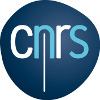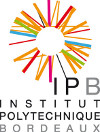|
Evènement pour le groupe Séminaire Linguistique et Informatique
| Date | 2008-03-10 15:00-17:00 |
| Titre | Lexical Resource Semantics: Combinatorics, Selection, and Computation |
| Résumé | Lexical Resource Semantics (LRS) is a framework for integrating
logical semantic representations with a constraint-based theory of
grammar. It combines semantic representations in the tradition of
Montague grammar with grammar specification techniques from
Head-driven Phrase Structure Grammar. To derive the semantics of
phrases from the semantics of their daughters, LRS does not use the
lambda calculus, although its semantic representations are based on
higher order logic, and lambda operators are available for specifying
meaning representations. Instead of using the lambda calculus, the
semantic combinatorics emerges from a small number of grammatical
principles which impose constraints on various semantic attribute
values of phrases depending on the values of corresponding attribute
values at their syntactic daughters. As a result of constraint
interaction, each utterance contains a logical formula of two-sorted
type theory (Ty2, Gallin 1975) as value of a distinguished semantics
attribute. This formula specifies the meaning of of the
utterance. In case an utterance is ambiguous, the denotation of the
HPSG grammar contains models of the utterance which may be
syntactically isomorphic and differ only with respect to different
formulae in the distinguished semantics attribute.
In this talk I will outline the LRS architecture with particular
emphasis on the combinatorial system and the ways in which lexical
items select semantic features of their arguments. I will then
explain how LRS grammars can be implemented in an extension of a
constraint logic programming system for HPSG grammars (TRALE). This
will be illustrated with a small fragment of English modelled after
the grammar of Pollard and Sag (1994), augmented with an LRS module.
The talk does not presuppose in-depth knowledge of HPSG or
Ty2. However, a certain degree of familiarity with the use of higher
order logic in semantic theories of natural languages and with a
grammar framework with a rich feature system (such as LFG or a version
of Tree Adjoining Grammar with feature structures) would be useful.
If you would like to prepare for the talk, you might want to take a
brief look at the LRS sections of Richter & Kallmeyer (2007), 'Feature
logic-based semantic composition: A comparison between LRS and LTAG',
available from
www.sfs.uni-tuebingen.de/~fr/current/richterkallmeyer.pdf |
| Lieu | Salle 076 |
| Orateur | Frank Richter |
| Email | fr@sfs.uni-tuebingen.de |
| Url | Université de Tübingen |
Aucun document lié à cet événement. RetourRetour à l'index
| |


